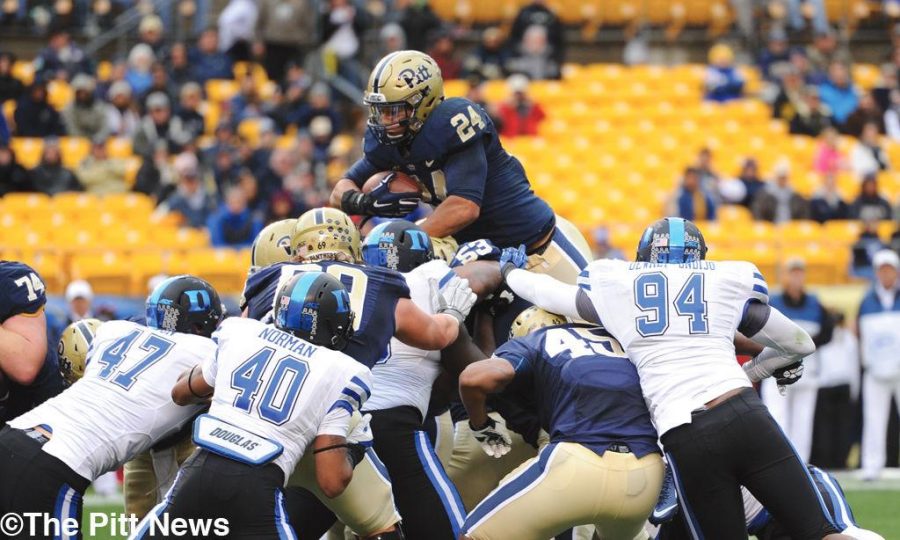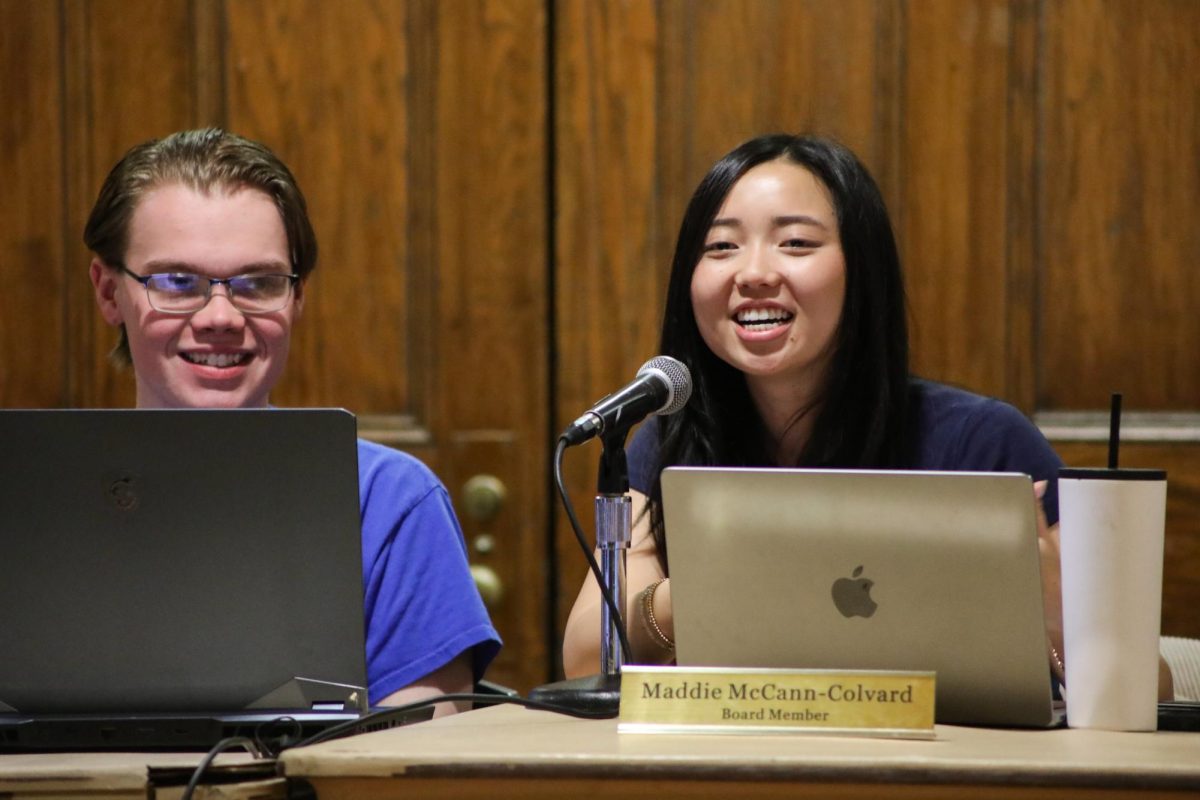On football Saturdays, throw worries to wayside and stay four quarters
May 28, 2015
It’s a tradition as old as the sport itself.
I encountered it at my first Pitt football game, a 41-13 drubbing at the hands of Florida State University and one young quarterback by the name of Jameis Winston.
At the end of the third quarter, the score was 34-13 in favor of the visitors, the subdued crowd came to life at the first notes of “Sweet Caroline.” My R.A., who had brought the whole of my freshmen floor to the game, assured us it would be worth the wait.
After getting over my reservations about the song as a Yankee fan (the Red Sox famously play the song at Fenway Park), it was a fun bonding experience. I felt as if I were one with my new peers.
But the feeling was quickly interrupted by the proddings of my R.A.
“Okay, time to leave, we have to beat the rush,” she said. And off we went, introducing me to the tradition of leaving games early.
Pat Narduzzi, and the rest of Pitt’s athletic department, have taken notice of this practice, as any Pitt students who check their emails regularly might have noticed.
“Finishing strong is the emphasis of the football team here at Pitt …That is why we implemented the ‘4th Quarter Conditioning Program’ this summer,” Narduzzi was quoted in the email.
It’s hard to see the email as anything but a wink and nudge to the Pitt fan base about the habit of only staying for three quarters, rather than all four when it comes to game day.
Joe Rood, Pitt’s director of marketing, said the campaign is about more than just the unusually silent quarter.
“There are talks about doing [things], not just the 4th quarter program, but from the time students get off the buses there to when they get back on and come back to campus,” he said. “[It’s about] what can we do with those six days to make it a fantastic experience for the students.”
Regardless of what is planned, you have to have a little compassion for Pitt students. Not to advocate for the tearing up of Schenley Plaza and the building of Pitt Stadium II, but the commute to Heinz Field can be killer.
Lines for buses extend from Bigelow Boulevard to Towers two hours before kickoff, and if you decide to wait until the very end of the game to go back to campus, expect to spend at least an hour in total between the ride and queuing.
But even past the students’ experience, Rood pointed out that the campaign is also about making “an exceptional home field advantage for [Pitt].”
Narduzzi described in the email that he considers the “Panther Pitt to be a vital part of our team.” And he has a point. According to an ESPN poll of 99 college head coaches, the teams with the best home field advantages read like a who’s who of college football power houses: LSU, Texas A&M, Oregon, Alabama and Ohio State, along with ACC rival Virginia Tech.
The argument could be easily made that these teams’ success spawned their raucous home crowds, and not the other way around. I’d probably agree with you.
But the stats show that home field advantage is a quantifiable thing, even if slight, and any team hoping to “win ACC Championships and compete for national titles,” as Narduzzi said in his email, should take every bit of advantage it can get. Whether it’s the crowd helping cause a few penalties against opponents or a missed field goal, it can make a difference — especially when home teams outscore their opponents by 3.5 points on average.
And if teams like Virginia Tech and Iowa are in the coaches poll, yet haven’t been anywhere near relevant for national titles in the past few years, then there has to be something to a loyal fan base.
While logically, yes, it might make sense to leave after the love fest known as “Sweet Caroline” to get back to your dorm and finish up some homework before a Saturday night, there is more to sports than logic.
The point of being a fan is giving up some of that logic. Being a fan is a bit like being Sisyphus — keep pushing that boulder of hope up the hill of reality until it rolls right back in your face.
So if that means staying until the end of a 41-13 blowout by the future national champions, then so be it. It can also mean staying until the end of a comeback you never saw coming.



